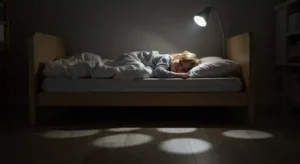Learn how lack of sleep affects teen mood and mental health. Understand the connection between sleep and well-being in adolescents for better health outcomes.
For many adolescents, the demands of school, social life, sports, and increasingly complex personal responsibilities create significant competition for sleep time, often leading to chronic sleep deprivation.Research increasingly points to a strong connection between the quality and quantity of sleep teens get and their overall mood and mental well-being, with implications extending to their daily performance and relationships.Understanding this link is the first step toward helping teens navigate these critical developmental years more effectively.
How Sleep Deprivation Affects Teen Mental Health
Teenagers require 8–10 hours of sleep each night, yet most fall short. A study published in Pediatrics shows that lack of sleep is directly tied to emotional dysregulation and increased sensitivity to stress.
Sleep regulates neurotransmitters and hormones that affect mood and stress. Without enough rest, teens are more likely to experience irritability, mood swings, anxiety, and even depression. These effects can compound quickly, creating a feedback loop where stress makes it harder to sleep — and poor sleep heightens emotional distress.
Importantly, the sleep–mental health relationship is two-way: anxiety and depression can worsen sleep, and poor sleep can intensify these conditions.
Real-World Consequences of Sleep Loss in Teens
Chronic sleep deprivation affects teens far beyond just feeling tired. Here’s how:
- Cognitive Decline: Sleep is essential for memory, focus, and decision-making. Tired teens struggle with attention and academic performance.
- Emotional Instability: Lack of sleep lowers stress tolerance and emotional control, straining relationships and increasing frustration.
- Increased Mental Health Risks: Insufficient rest has been linked to higher rates of anxiety, depression, and emotional burnout.
- Risky Behavior: Tired teens are more likely to engage in dangerous activities, such as reckless driving or poor decision-making.
These impacts can derail academic success, self-confidence, and social development during crucial years.
Better Sleep Hygiene: Practical Tips for Teens
Improving sleep isn’t impossible — it starts with habits. Here are proven strategies to promote healthier rest:
- Keep a Consistent Schedule: Go to bed and wake up at the same time every day, including weekends.
- Create a Calm Sleep Environment: Cool, dark, and quiet bedrooms help signal the brain that it’s time for sleep.
- Limit Electronics Before Bed: Power down screens at least 30–60 minutes before sleeping to reduce blue light exposure.
- Avoid Caffeine and Sugar Late in the Day: These stimulants disrupt natural sleep cycles.
- Encourage Daily Activity: Exercise helps regulate energy and promotes deeper rest — just avoid late-night workouts.
Advocating for later school start times also aligns with teens’ natural circadian rhythms, helping them get the sleep they biologically need.
Why Sleep Is Essential for Emotional Wellness
Think of sleep as an emotional stabilizer. When teens get enough rest, they’re better equipped to handle stress, think clearly, and stay balanced emotionally.
While sleep won’t “cure” mental health issues, it’s a non-negotiable support system that strengthens any other strategy — from therapy to lifestyle changes. Prioritizing healthy sleep could be the simplest and most impactful step in protecting teen well-being.
Conclusion
Teens need sleep — not just for energy, but for emotional strength, focus, and long-term health. Ignoring sleep’s role in mental wellness is risky. But the good news? It’s fixable.
By improving sleep habits, raising awareness, and supporting science-based changes like delayed school start times, we can give teenagers a better chance at navigating their complex world with clarity and resilience.
Frequently Asked Questions
Can improving sleep habits reduce anxiety in teens?
Yes. Sleep plays a key role in emotional regulation. Teens who get enough sleep often show better mood stability and lower anxiety levels.
How many hours of sleep do teens need per night?
Most health experts recommend 8 to 10 hours for adolescents. Anything less on a regular basis can negatively impact their physical and emotional health.








